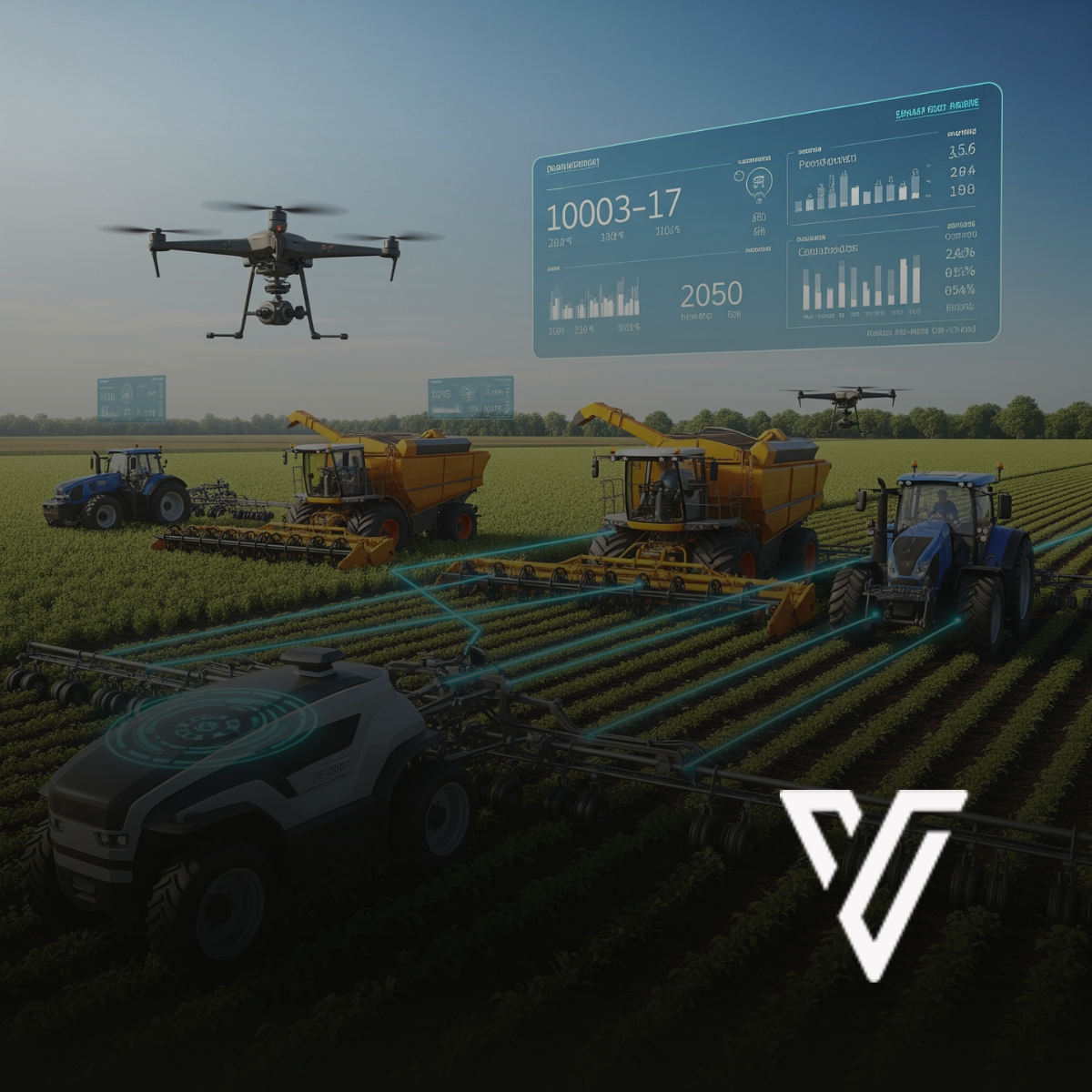The Transformation of Traditional Agricultural
sector, The agricultural sector is experiencing an unprecedented transformation. The model “Farming-as-a-Service” (FaaS) is not simply a passing trend, but a revolution that is redefining the operation in the field. This modality represents a paradigm shift in how the producers have access to the technology and agricultural services, democratizing tools that were previously reserved for large enterprises with the capability of considerable investment.
The essence of the FaaS lies in its ability to remove financial barriers initials. Today, the producer can hire technology and services without the need for large initial investments. Instead of purchasing expensive machinery, systems or tools —and take on that financial burden as a fixed cost— you can opt for models of pay-per-use or subscription, transforming fixed costs into variable and adaptable.
The technology that previously seemed unattainable —monitoring with IoT, robotics, software management, services of sowing and harvest, today it is within the reach of all: large enterprises, cooperatives, small producers and new actors that were outside of the game.
This model takes on special relevance in economic contexts volatile, where the ability of adaptation has become a determining factor for the survival and growth. The fintechs, startups and platforms hybrid are introducing flexibility and new logics of management that allow producers to adjust rapidly to changing market conditions and the weather.
Benefits and Opportunities of the Model FaaS
The model FaaS is having a significant impact on the agricultural ecosystem, with benefits that extend to various actors in the sector. Among the main advantages we can highlight:
- Democratization of technology: Allows producers of all sizes access to advanced technologies without large initial investments.
- Financial flexibility: Transform fixed costs into variables, improving the management of cash flow and reducing financial risks.
- Constant updates: Users always have access to the latest versions and technological improvements without significant added costs.
- Scalability: it Facilitates the progressive growth of the operations without the need for large investments in each stage.
- Specialization: Allows producers to focus on their core business while delegating aspects of technology specialists.
According to a specialized study of AgTecher, “farming as a service (FaaS) is a model that integrates advanced technologies in the traditional agricultural practices, offering a set of services designed to make agriculture more efficient, sustainable and cost-effective”. This definition captures perfectly the essence transformative power of the model.
The implementation of FaaS is creating an ecosystem more dynamic and diverse, where new players can enter the market with innovative proposals. The barriers to entry are reduced significantly, allowing it to tech entrepreneurs, startups and providers of specialized services to find their place in the agricultural value chain.
Challenges and Considerations for the Management of Risks
As the model FaaS gains traction, there arises a fundamental question that is just beginning to be discussed in depth: how to protect those investments and relationships? The traditional scheme of insurance is inadequate to face the new scenarios posed by this model.
Not only to ensure a machine or a culture; it is now necessary to consider aspects such as:
- data Protection: The information generated by sensors, drones and monitoring systems represents a valuable asset that requires specific protection.
- Service contracts: The agreements between the providers and users need a legal framework adapted to these new modalities.
- Shared responsibilities: The delineation of responsibilities between providers of technology, services, and producers requires clarity of contract.
- Operational continuity: Ensure that the dependency on external services does not create vulnerabilities in critical moments of the production cycle.
- Cyber security: The protection against threats that digital becomes essential in an environment increasingly connected.
These challenges represent opportunities for the development of new products and services specializing in the management of risks for the model FaaS. Insurance companies, consulting firms and technology companies face a fertile field for innovation.
The future of the agricultural sector is not a distant prospect; as it is writing in the present tense. The model FaaS marks the start of a new logic for those who seek to grow without being left behind in the technological race. Producers, investors and service providers that understand and embrace this transformation will be better positioned to meet the challenges of an industry that increasingly demands efficiency, sustainability and adaptability.
What is your company prepared to take advantage of the opportunities offered by the model FaaS? What about how to adequately protect your investment in this new paradigm? We invite you to assess your current strategy and to explore the possibilities that this technology revolution provides for the sustainable growth of your agricultural operation.




